
Virtual Alumni College Archive
To access the lecture videos, complete the registration form linked to below by each historical lecture. You will receive an email with the link to watch the lecture. Thank you for continuing to make this program a huge success. #GrinnelliansStayConnected
If you would like to submit ideas for future Alumni Colleges, please send us an email, or if you have specific questions, contact Adam Kelley-Chown at kelleyad@grinnell.edu.
Virtual Alumni College Fall 2024 Lectures
Registration for some of the Virtual Alumni College Fall 2024 lectures/discussion is now open and others will open soon. Once registration opens, you can find the links for the lecture videos in your confirmation emails.
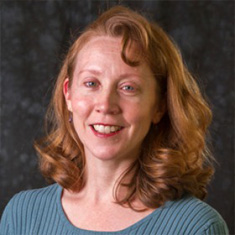 Creating a Memoiristic Dance
Creating a Memoiristic Dance
Kathleen Hurley, Lecturer, Theatre, Dance, and Performance Studies
Discussion date: Wednesday, Oct. 30, 10 a.m. CT
Learn more about Kathleen Hurley and see a full description of the lecture on the Creating a Memoiristic Dance registration page. After you register, you will receive an email with the link to watch the lecture at your leisure. If you sign up for the discussion section, please watch the lecture before attending.
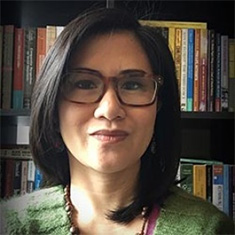 Book Talk on "Insurgent Communities: How Protests Create a Filipino Diaspora
Book Talk on "Insurgent Communities: How Protests Create a Filipino Diaspora
Sharon Quinsaat, Associate Professor, Chair, Department of Peace and Conflict Studies
Discussion date: Thursday, December 12, 2 p.m. CT
Learn more about Sharon Quinsaat and see a full description of the lecture on the Book Talk on “Insurgent Communities…” registration page. After you register, you will receive an email with the link to watch the lecture at your leisure. If you sign up for the discussion section, please watch the lecture before attending.
Virtual Alumni College Spring 2024 Lectures
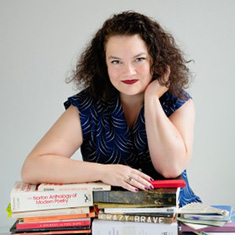 Performing Grinnell Past: Songs of the Scarlet & Wayback
Performing Grinnell Past: Songs of the Scarlet & Wayback
Jen Shook, Assistant Professor, Theatre, Dance, and Performance Studies, Digital Studies
Discussion date: Thursday, February 22, 2 p.m. CT
Learn more about Jen Shook and see a full description of the lecture on the Performing Grinnell Past: Songs of the Scarlet & Wayback registration page. After you register, you will receive an email with the link to watch the lecture at your leisure. If you sign up for the discussion section, please watch the lecture before attending.
 Creative Minds and Bodies
Creative Minds and Bodies
Kathleen Hurley, Lecturer, Theatre, Dance, and Performance Studies
Discussion date: Monday, February 26, 11 a.m. CT
Learn more about Kathleen Hurley and see a full description of the lecture on the Creative Minds and Bodies registration page. After you register, you will receive an email with the link to watch the lecture at your leisure. If you sign up for the discussion section, please watch the lecture before attending.
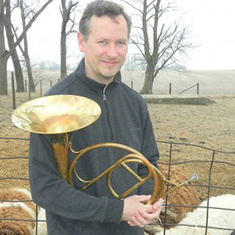 The Tip of the Iceberg: What do Orchestra Conductors Really Do?
The Tip of the Iceberg: What do Orchestra Conductors Really Do?
Eric McIntyre, Professor, Music
Discussion date: Thursday, March 7, 3 p.m. CT
Learn more about Eric McIntyre and see a full description of the lecture on the Tip of the Iceberg: What do Orchestra Conductors Really Do? registration page. After you register, you will receive an email with the link to watch the lecture at your leisure. If you sign up for the discussion section, please watch the lecture before attending.
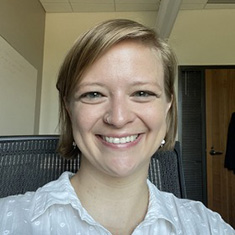 What is Gender? From Second Wave Feminism to Anti-Queer Backlash
What is Gender? From Second Wave Feminism to Anti-Queer Backlash
Clara Montague, English, Gender, Women’s, and Sexuality Studies (GWSS)
Discussion date: Thursday, March 14, 2 p.m. CT
Learn more about Clara Montague and see a full description of the lecture on the What is Gender? From Second Wave Feminism to Anti-Queer Backlash registration page. After you register, you will receive an email with the link to watch the lecture at your leisure. If you sign up for the discussion section, please watch the lecture before attending.
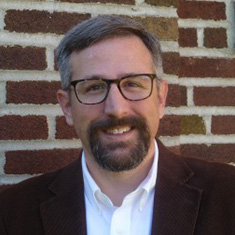 The First “Green New Deal”
The First “Green New Deal”
Michael Guenther, Associate Professor in Education Studies, History, American Studies, and Digital Studies. He is also the chair of the history and science, medicine, and society departments.
Discussion date: Thursday, March 28, 2 p.m. CT
Learn more about Michael Guenther and see a full description of the lecture on the The First “Green New Deal” registration page. After you register, you will receive an email with the link to watch the lecture at your leisure. If you sign up for the discussion section, please watch the lecture before attending.
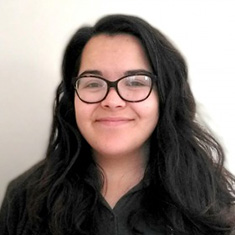 What's 'Special' about Special Collections?
What's 'Special' about Special Collections?
Laura Michelson, Assistant Professor, Libraries, Project Archivist
Discussion date: Thursday, April 18, 11 a.m. CT
Learn more about Laura Michelson and see a full description of the lecture on the What's 'Special' about Special Collections? registration page. After you register, you will receive an email with the link to watch the lecture at your leisure. If you sign up for the discussion section, please watch the lecture before attending.
Virtual Alumni College Fall 2023 Lectures
Registration for the Virtual Alumni College fall 2023 lectures is now open. You can find the links for the lecture videos in your confirmation emails.
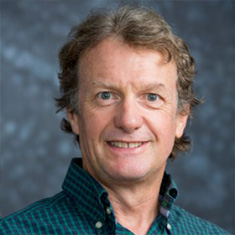 Power, Institutions, and Economic Development
Power, Institutions, and Economic Development
Bill Ferguson ’75, Gertrude B. Austin Professor of Economics
Discussion date: Monday, September 18, 1 p.m. CT
Learn more about Bill Ferguson ’75 and see a full description of the lecture on the Power, Institutions, and Economic Development registration page. After you register, you will receive an email with the link to watch the lecture at your leisure. If you sign up for the discussion section, please watch the lecture before attending.
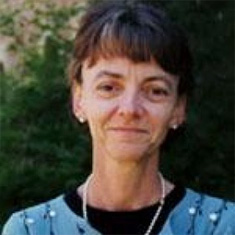 Humans, Evolution, Running, and Me
Humans, Evolution, Running, and Me
Vicki Bentley-Condit, Senior Faculty, Anthropology
Discussion date: Wednesday, September 27, 4 p.m. CT
Learn more about Vicki Bentley-Condit and see a full description of the lecture on the Humans, Evolution, Running, and Me registration page. After you register, you will receive an email with the link to watch the lecture at your leisure. If you sign up for the discussion section, please watch the lecture before attending.
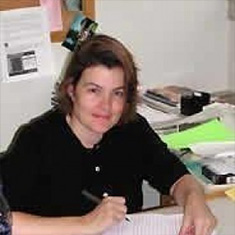 What Young Adult Literature Tells Us About Societal Change
What Young Adult Literature Tells Us About Societal Change
Kelly Herold, Associate Professor, Russian
Discussion date: Thursday, October 5, 2 p.m. CT
Learn more about Kelly Herold and see a full description of the lecture on the What Young Adult Literature Tells Us About Societal Change registration page. After you register, you will receive an email with the link to watch the lecture at your leisure. If you sign up for the discussion section, please watch the lecture before attending.
 Creative Contemporary Movement: Ideas and Inspiration
Creative Contemporary Movement: Ideas and Inspiration
Kathleen Hurley, Lecturer, Theatre, Dance, and Performance Studies
Discussion date: Tuesday, October 17, 11 a.m. CT
Learn more about Kathleen Hurley and see a full description of the lecture on the Creative Contemporary Movement: Ideas and Inspiration registration page. After you register, you will receive an email with the link to watch the lecture at your leisure. If you sign up for the discussion section, please watch the lecture before attending.
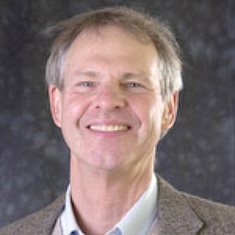 Why Are the Meskwaki in Iowa?
Why Are the Meskwaki in Iowa?
Jon Andelson ’70, Senior Faculty, Rosenfield Professor in Social Science
Discussion date: Thursday, October 26, 2 p.m. CT
Learn more about Jon Andelson and see a full description of the lecture on the Why Are the Meskwaki in Iowa registration page. After you register, you will receive an email with the link to watch the lecture at your leisure. If you sign up for the discussion section, please watch the lecture before attending.
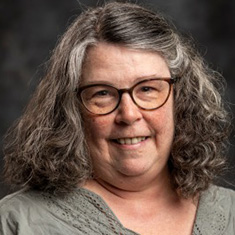 The Bosom of Abraham: A Representation of Paradise in Illuminated Medieval Manuscripts
The Bosom of Abraham: A Representation of Paradise in Illuminated Medieval Manuscripts
Sharon Clayton, Associate Professor, Libraries
Discussion date: Wednesday, November 8, 1 p.m. CT
Learn more about Sharon Clayton and see a full description of the lecture on the The Bosom of Abraham: A Representation of Paradise in Illuminated Medieval Manuscripts registration page. After you register, you will receive an email with the link to watch the lecture at your leisure. If you sign up for the discussion section, please watch the lecture before attending.
Virtual Alumni College Spring 2023 Lectures
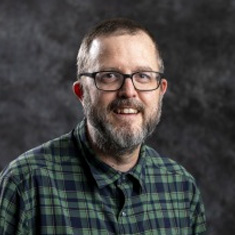 The Legal Violence of Immigration Controls
The Legal Violence of Immigration Controls
Ryan Solomon, associate director of service and social innovation
Learn more about Ryan Solomon and see a full description of the lecture on the The Legal Violence of Immigration Controls registration page. After you register, you will receive an email with the link to watch the lecture at your leisure.
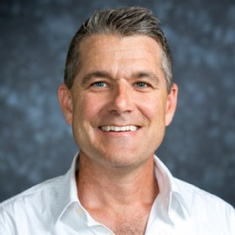 Translating a 17th-Century French Novel for 21st Century College Students: La Princesse de Cleves Goes Digital
Translating a 17th-Century French Novel for 21st Century College Students: La Princesse de Cleves Goes Digital
David Harrison, professor, French and Arabic
Learn more about David Harrison and see a full description of the lecture on the Translating a 17th-Century French Novel for 21st Century College Students: La Princesses de Cleves Goes Digital registration page. After you register, you will receive an email with the link to watch the lecture at your leisure.
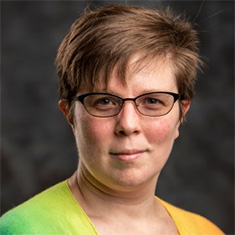 Built for Whom? Library Discrimination of the Past and Present
Built for Whom? Library Discrimination of the Past and Present
Kayla Reed, assistant professor of discovery, systems & digital strategy librarian
Learn more about Kayla Reed and see a full description of the lecture on the Built for Whom? Library Discrimination of the Past and Present registration page. After you register, you will receive an email with the link to watch the lecture at your leisure.
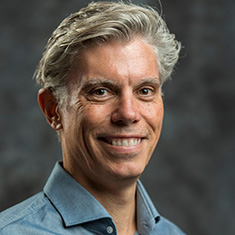 The Enduring Power of Cole Porter’s Music
The Enduring Power of Cole Porter’s Music
John Garrison, professor of English, digital studies, peace & conflict studies
Learn more about John Garrison and see a full description of the lecture on the The Enduring Power of Cole Porter’s Music Registration page. After you register, you will receive an email with the link to watch the lecture at your leisure.
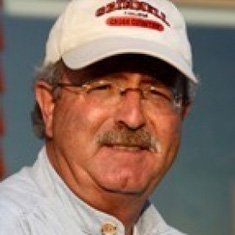 The Journeys of Grinnell’s Odd Couple, Will Freeman and Kesho Scott
The Journeys of Grinnell’s Odd Couple, Will Freeman and Kesho Scott
Will Freeman, associate professor, physical education and Kesho Scott, senior faculty, sociology and American studies
Learn more about Will Freeman and Kesho Scott and see a full description of the lecture on the The Journeys of Grinnell’s Odd Couple, Will Freeman and Kesho Scott registration page. After you register, you will receive an email with the link to watch the lecture at your leisure.
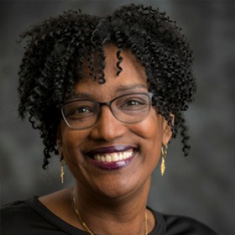
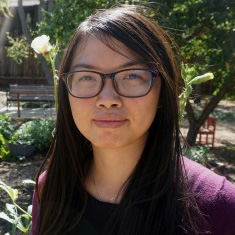 The Archaeology of Old Chinatowns and New Villages
The Archaeology of Old Chinatowns and New Villages
Laura Ng, assistant professor of anthropology, east Asian studies
Learn more about Laura Ng and see a full description of the lecture on the The Archaeology of Old Chinatowns and New Villages registration page. After you register, you will receive an email with the link to watch the lecture at your leisure.
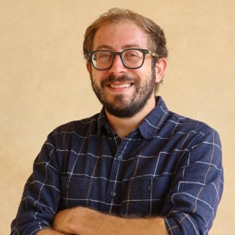 It’s a Family Affair: The Evolution of Policies for Families in Europe
It’s a Family Affair: The Evolution of Policies for Families in Europe
Andreas Jozwiak, assistant professor of political science
Learn more about Andreas Jozwiak and see a full description of the lecture on the It’s a Family Affair: The Evolution of Policies for Families in Europe registration page. After you register, you will receive an email with the link to watch the lecture at your leisure.
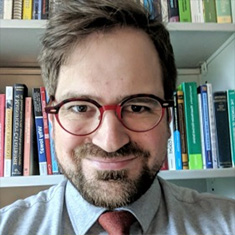
How Democratic is the U.S. Electoral College?
Sheahan Virgin, assistant professor of political science
Learn more about Sheahan Virgin and see a full description of the lecture on the How Democratic is the U.S. Electoral College? registration page. After you register, you will receive an email with the link to watch the lecture at your leisure.
Virtual Alumni College Fall 2022 Lectures
What is Writing For?
Faculty Member: Tisha Turk
This lecture explains some of the limits of defining writing as a skill, offers alternative ways of understanding what writing is and how it works, and explains why embracing these alternative understandings can help us become better writers.
Learn more about Tisha Turk and see a full description of the lecture on the What is Writing For? registration page. You are still able to watch the lecture by registering. After you register, you will receive an email with the link to watch the lecture at your leisure.
The Confederate Flag: Contextualizing White Supremacy
Faculty Member: Sarah Purcell, L.F. Parker Professor of History
Learn the historical context of the confederate flag to help you make sense of today's flag debates.
Learn more about Sarah Purcell and see a full description of the lecture on the The Confederate Flag registration page. You are still able to watch the lecture by registering. After you register, you will receive an email with the link to watch the lecture at your leisure.
ICYMI: The Political Economy of Polarization in America, with a Few Ideas on Reversal
Faculty Member: Bill Ferguson '75, Gertrude B. Austin Professor of Economics
This talk was given at Reunion 2022 and will address underlying political and economic conditions that have led to increasing polarization in the U.S. over the past 50 years, culminating in controversies over guns, immigration, COVID-19, and teaching about race. Concluding ideas on reversal will draw from Professor Ferguson’s prior experience as a community organizer.
Learn more about Bill Ferguson and see a full description of the lecture on the ICYMI: The Political Economy of Polarization in America, with a Few Ideas on Reversal registration page. You are still able to watch the lecture by registering. After you register, you will receive an email with the link to watch the lecture at your leisure.
Environmentalism and the Idea of 'Nature'
Faculty Member: John Fennell, F. Wendell Miller Professor of Philosophy
This lecture is interested in philosophically unpacking the conception of nature that underpins the ethic of wilderness preservation – in particular the dichotomous way it understands the relation between human beings and the non-human (natural) world – as well as exploring some of its (possibly problematic) moral implications.
Learn more about John Fennell and see a full description of the lecture on the Environmentalism and the Idea of 'Nature' registration page. You are still able to watch the lecture by registering. After you register, you will receive an email with the link to watch the lecture at your leisure.
Helen of Troy after the War
Faculty Member: Dustin Dixon, assistant professor of classics
In this lecture, Professor Dixon uncovers a minor mythological tradition that imagines Helen growing old after the war. As these mythic accounts of an aging Helen reflect on the ephemerality of beauty and on the brutality of war, they offer us an opportunity to contemplate the power of myth both to express and to challenge our values.
Learn more about Dustin Dixon and see a full description of the lecture on the Helen of Troy after the War registration page. You are still able to watch the lecture by registering. After you register, you will receive an email with the link to watch the lecture at your leisure.
Introduction to a Farewell
Faculty Member: Eric McIntyre, professor of music and director of the Grinnell Symphony Orchestra
In this lecture, we examine the historical and artistic framework of the five compositions Ludwig van Beethoven composed in his final years, and consider how they still speak to us and provide a window into truth, almost two centuries after their composition.
Learn more about Eric McIntyre and see a full description of the lecture on the Introduction to a Farewell registration page. You are still able to watch the lecture by registering. After you register, you will receive an email with the link to watch the lecture at your leisure.
Virtual Alumni College Spring 2022 Lectures
Q.E.D.: What Emily Dickinson's math books did for me
Faculty Member: Tom Moore, professor emeritus
In 2013 Professor Moore audited Steve Andrews’s class on Emily Dickinson and Walt Whitman during the spring semester. He had found Dickinson’s poems intriguing but perplexing and thought he could use some help.
Learn more about professor emeritus Tom Moore and see a full description of the lecture on the Q.E.D.: What Emily Dickinson's math books did for me registration page. After you register, you will receive an email with the link to watch the lecture at your leisure.
UnderSTANDING the Body: Dance for Self Expression and Authentic Movement
Faculty Member: Kathleen Hurley, instructor/lecturer in theatre and dance
The body is our instrument for functional life but can also be a deep vessel of messages. Movement can unearth memories (buried in particular body parts) and reveal creative longings. "UnderSTANDING the Body: Dance for Self Expression and Authentic Movement" gently leads people of any age and movement ability through a series of guided movement improvisations designed to open awareness and bring a deeper level of body listening.
Learn more about instructor and Lecturer Kathleen Hurley and see a full description of the lecture on the UnderSTANDING the Body: Dance for Self Expression and Authentic Movement registration page. After you register, you will receive an email with the link to watch the lecture at your leisure.
Mozart's Juggling Act
Faculty Member: Eric McIntyre, professor of music
In the final movement of his final symphony, Mozart performs one of the more extraordinary displays of musical, mathematical, and creative prowess ever presented by a composer – and he makes it look (or sound!) easy. In this session we examine how a work that, on its surface is seemingly just another bit of musical fun, reveals extraordinary skill on so many levels.
Previous experience with music theory or classical music is not necessary to understand this session!
Learn more about professor Eric McIntyre and see a full description of the lecture on the Mozart's Juggling Act registration page. After you register, you will receive an email with the link to watch the lecture at your leisure.
Medieval European Books of Hours – What are they? How were they made? Who read them?
Faculty Member: Sharon R. Clayton, associate professor/acquisitions and discovery librarian & Laura Michelson, assistant library professor
Medieval Books of Hours are manuscript books containing prayers and devotional texts that were created and used primarily from the 13th through 16th centuries in Western Europe. These manuscript prayer books were often beautifully illustrated and bound, becoming objects of art as well as devotional texts. More books of hours remain today than any other artifact from medieval Europe. This lecture will provide more detail on what was in these books, how they were made, and who their readers were. Clayton and Michelson will show numerous beautiful examples along the way, including some from The Salisbury House Library Collection at Grinnell College Special Collections & Archives.
Learn more about professors Sharon R. Clayton and Laura Michelson and see a full description of the lecture on the Medieval Books of Hours registration page. After you register, you will receive an email with the link to watch the lecture at your leisure.
Narrative and Identity
Faculty Member: Johanna Meehan, McCay-Casady Professor of Humanities
Who am I? What links the self I was as a child, as a young woman, to the person I am today? Why does my past seem to matter to present self? Theorists have argued that not only do autobiographical narratives matter, but they truly are what the self is. While Professor Meehan shares the belief that narratives are critically important to our sense of self, they do not constitute the whole of a self. In this lecture she will examine both the importance and limits to the role that narrative plays in the founding and sustaining of the self.
Learn more about professor Johanna Meehan and see a full description of the lecture on the Narrative and Identity registration page. After you register, you will receive an email with the link to watch the lecture at your leisure.
Virtual Alumni College Fall 2021 Lectures
Stratification Economics and Intergroup Inequality
Faculty Member: Bill Ferguson ’75, Gertrude B. Austin Professor of Economics
This course will discuss how stratification economics offers a conceptual framework for understanding economic foundations of intergroup inequality by race, gender, ethnicity, or social class.
Learn more about professor Bill Ferguson and see a full description of the lecture on the Stratification Economics and Intergroup Inequality registration page. After you register, you will receive an email with the link to watch the lecture at your leisure.
Regenerative Medicine: Learning from the Regeneration Pros
Faculty Member: Pascal Lafontant, professor of biology
When will Regenerative Medicine come of age? What technological barriers need to be overcome? In this talk we will assess how far Regenerative Medicine has come in the last decades. We will survey the field of regenerative biology and the extraordinary ability of several species to regenerate limbs, spinal cord, heart, pancreas, or their entire body from a one segment. How can we experimentally facilitate the emergence of these abilities in humans? We will learn about key biological processes that are the foundation of tissue repair and regeneration and consider the ethical questions Regenerative Medicine raises.
Learn more about professor Pascal Lafontant and see a full description of the lecture on the Regenerative Medicine: Learning from the Regeneration Pros registration page. After you register, you will receive an email with the link to watch the lecture at your leisure.
Edward Steiner: A Grinnell Professor's Immigration Story
Faculty Member: Professor Emeritus George Drake ’56
Edward Steiner was Grinnell's Professor of Applied Christianity from 1903 to 1941. He immigrated to the U.S. in the late 19th Century and experienced two years of moving from place to place and job to job before converting to Christianity and becoming a pastor before ending up at Grinnell. He wrote more books than any other faculty member in history and was considered an expert on immigration.
Learn more about professor emeritus George Drake and see a full description of the lecture on the Edward Steiner: A Grinnell Professor's Immigration Story registration page. After you register, you will receive an email with the link to watch the lecture at your leisure.
The Secrets of Shakespeare's Sonnets
Faculty Member: John Garrison, professor of English
Shakespeare's Sonnets contain some of the most famous love poems in the English language. They also tell us a lot about how Shakespeare's thought his writing might exist beyond his lifetime in cultural memory. But what do they tell us about Shakespeare's own thinking about love or about how he'd remember his own life? In this lecture and subsequent discussion, Professor Garrison shares some of his latest thinking from his new research that earned him a Guggenheim Fellowship this year. And he invites participants to think about their own relationship to Shakespeare's poetry.
Learn more about professor John Garrison and see a full description of the lecture on the The Secrets of Shakespeare's Sonnets registration page. After you register, you will receive an email with the link to watch the lecture at your leisure.
The Invention of the Bicycle
Faculty Member: Michael Guenther, associate professor of history
This lecture uses the fascinating history of the bicycle to explore three central questions that animate the study of technology: 1.) How and why do "inventions" appear in particular times and places, and who should receive "credit" for them? 2.) Why do particular design paths tend to become standardized and "locked-in" so that alternative forms of a technology, however promising, disappear? 3.) How are technologies shaped by social, economic, even political forces, and conversely, how do new technologies disrupt or transform society? We will explore these issues by examining the largely unknown story of the bicycles evolution in 19th-century America.
Learn more about professor Michael Guenther and see a full description of the lecture on the The Invention of the Bicycle registration page. After you register, you will receive an email with the link to watch the lecture at your leisure.
Virtual Alumni College Spring 2021 Lectures
What's So Great About Beethoven's Fifth?
Faculty Member: Eric McIntyre
Although in popular culture, it might suffer from perception as a classical music cliché, is it possible that Beethoven's Fifth Symphony is actually as good as they say it is?
Learn more about professor Eric McIntyre and see a full description of the lecture on the What's So Great about Beethoven's Fifth registration page. After you register, you will receive an email with the link to watch the lecture at your leisure.
What Grinnell and its students taught me over my 40 years at Grinnell College
Faculty Member: Will Freeman
This presentation is about what I learned and how our teams became successful. It’s about psychology, training design, and pedagogy, and Grinnell teaching me what really mattered.
Learn more about professor Will Freeman and see a full description of the lecture on the My 40 years at Grinnell College registration page. After you register, you will receive an email with the link to watch the lecture at your leisure.
Decolonizing Museums, Repatriating Collections
Faculty Member: Lesley Wright
The modern museum is a product of colonial Western cultures. Contemporary museums are reckoning with practices that are less than equitable, and facing calls to return, share, and rethink collections. The Grinnell College Museum of Art is not immune to these significant shifts in museum practice.
Learn more about Director Lesley Wright and see a full description of the lecture on the Decolonizing Museums, Repatriating Collections registration page. After you register, you will receive an email with the link to watch the lecture at your leisure.
Music, Difference, Empathy, and Africa (i.e., Zimbabwe)
Faculty Member: Tony Perman
Like the legacies of the banjo, or yoga, or a number of other examples, what are the consequences of consuming and performing difference through music. Does empathy have a dark side?
Learn more about Professor Tony Perman and see a full description of the lecture on the Music, Difference, Empathy, and Africa (i.e., Zimbabwe) registration page. After you register, you will receive an email with the link to watch the lecture at your leisure.
Fragility and Conflict-Affected States
Faculty Member: Leif Brottem
As we consider the United States in its current state of social and political fragility, what are the parallels with other countries affected by conflict? The label "fragile and conflict-affected state" is typically reserved for countries where governance is viewed by outsiders as hopelessly corrupt and politics are practiced in ways that most Americans would not recognize.
Learn more about Professor Leif Brottem and see a full description of the lecture on the Fragility and Conflict-Affected States registration page. After you register, you will receive an email with the link to watch the lecture at your leisure.
Race and the Bible
Faculty Member: Elliot Ratzman
Are the British the "lost tribes of Israel"? Does the Bible condemn interracial marriage? Is there "racism" in the ancient world? In the Americas, South Africa, and elsewhere the Bible has been used as a tool of oppression to justify slavery, colonialism, and massacre but also as a tool for the fight for justice and racial equality. In this pre-recorded lecture, Dr. Ratzman explores some of the obscure Biblical episodes that were mobilized over the centuries to underwrite racism, slavery, and colonialism. By understanding the original contexts and their modern interpretations, we can see how holy texts play a role in justifying – and combatting – racism and injustice.
Learn more about Professor Elliot Ratzman and see a full description of the lecture on the Race and the Bible registration page. After you register, you will receive an email with the link to watch the lecture at your leisure.
Intersubjectivity: Love, Loss, and The Self
Faculty Member: Johanna Meehan
What is a self and how is it formed? What role does love, loss, trauma, and resilience play in making us who we are?
Learn more about Professor Johanna Meehan and see a full description of the lecture on the Intersubjectivity: Love, Loss, and The Self registration page. After you register, you will receive an email with the link to watch the lecture at your leisure.
Virtual Alumni College Summer 2020 Lectures
The Confederate Flag: Contextualizing White Supremacy
Faculty Member: Sarah Purcell
Learn the historical context of the confederate flag to help you make sense of today's flag debates.
Learn more about Sarah Purcell and see a full description of the lecture on the The Confederate Flag registration page. You are still able to watch the lecture by registering. After you register, you will receive an email with the link to watch the lecture at your leisure.
"Everything in the Future is Black: An Introduction to Afrofuturism"
Faculty Member: Makeba Lavan
This lecture will guide listeners through the basic tenets and purposes of Afrofuturism.
Learn more about Makeba Lavan and see a full description of the lecture on the Everything in the Future is Black registration page. You are still able to watch the lecture by registering. After you register, you will receive an email with the link to watch the lecture at your leisure.
The Indispensable Grinnellian: Joe Rosenfield and Grinnell’s Trajectory from Salvation to Excellence
Faculty Member: George Drake
In this lecture, George Drake will discuss his biography of Joe Rosenfield ’25, Mentor.
Learn more about George Drake and see a full description of the lecture on the The Indispensable Grinnellian registration page. You are still able to watch the lecture by registering. After you register, you will receive an email with the link to watch the lecture at your leisure.
Jazz Works: Making Money Making Music in 1970s Toronto
Faculty Member: Mark Laver
This talk will share stories of the music scene in 1970s Toronto: a time and a place where the music business was booming, where people moved from bigger cities and left other careers to get on board.
Learn more about Mark Laver and see a full description of the lecture on the Jazz Works registration page. You are still able to watch the lecture by registering. After you register, you will receive an email with the link to watch the lecture at your leisure.
Lessons for Humanity from a Black Lives Matter Lens
Faculty Member: Kesho Scott
In this lecture, you will learn about the Black Lives Matter framework and get answers to seven essential questions. You will leave with more questions but feel good about your newly acquired knowledge.
Learn more about Kesho Scott and see a full description of the lecture on the Lessons for Humanity from a Black Lives Matter Lens registration page. You are still able to watch the lecture by registering. After you register, you will receive an email with the link to watch the lecture at your leisure.
Messy Humans: The Social Life of Machines
Faculty Member: Karla Erickson
As a labor ethnographer trained in American Studies, Sociology and Feminist Studies, Erickson and her research team have developed a method for investigating present-day technologies to develop a sociology of machine/human interaction. Please join us as we use the machines of today to think of possible futures.
Learn more about Karla Erickson and see a full description of the lecture on the Messy Humans registration page. You are still able to watch the lecture by registering. After you register, you will receive an email with the link to watch the lecture at your leisure.
Movement, Feeling, Who We Are
Faculty Member: Liz Queathem
In this lecture, you will learn how movement is both a physical action that takes an organism from one place to another, and a metaphor for progress. Come prepared to watch, learn, and do the hokey-pokey.
Learn more about Liz Queathem and see a full description of the lecture on the Movement, Feeling, Who We Are registration page. You are still able to watch the lecture by registering. After you register, you will receive an email with the link to watch the lecture at your leisure.
The Pandemic as a Complex Collective-Action Problem: Contagion, Recession, Political Decay, and Inequality
Faculty Member: Bill Ferguson
This lecture will address several political and economic dimensions of this global pandemic, using the notion of collective-action problems as an analytical framework.
Learn more about Bill Ferguson and see a full description of the lecture on the The Pandemic as a Complex Collective-Action Problem registration page. You are still able to watch the lecture by registering. After you register, you will receive an email with the link to watch the lecture at your leisure.
The Struggle for Gay Rights Before Stonewall
Faculty Member: Javier Samper Vendrell
This lecture proposes that homoerotic magazines played a crucial role in the homosexual rights movement during the Weimar Republic (1918–1933).
Learn more about Javier Samper Vendrell and see a full description of the lecture on the The Struggle for Gay Rights Before Stonewall registration page. You are still able to watch the lecture by registering. After you register, you will receive an email with the link to watch the lecture at your leisure.
To Mask or Not to Mask: Why is There a Question?
Faculty Member: Johanna Meehan
In this lecture, we will examine the answers to critical questions that have a very significant impact on how we understand dependence and independence, and ultimately on how we understand human dependence and independence.
Learn more about Johanna Meehan and see a full description of the lecture on the To Mask or Not to Mask registration page. You are still able to watch the lecture by registering. After you register, you will receive an email with the link to watch the lecture at your leisure.
What is Writing For?
Faculty Member: Tisha Turk
This lecture explains some of the limits of defining writing as a skill, offers alternative ways of understanding what writing is and how it works, and explains why embracing these alternative understandings can help us become better writers.
Learn more about Tisha Turk and see a full description of the lecture on the What is Writing For? registration page. You are still able to watch the lecture by registering. After you register, you will receive an email with the link to watch the lecture at your leisure.